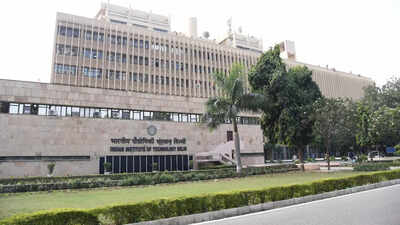
IIT Delhi's new curriculum prepares students for future challenges through hands-on learning and emerging technologies
IIT Delhi revamps UG, PG, and PhD curriculum: The Indian Institute of Technology Delhi (IIT Delhi) has unveiled a comprehensive revision of its curriculum for undergraduate (UG), postgraduate (PG), and PhD programmes.
Set to be implemented from the academic year 2025-26, the overhaul aims to equip students with future-ready skills by aligning the curriculum with global trends.
The new structure prioritises flexibility, hands-on learning, and sustainability, reflecting the evolving demands of the modern world.The curriculum review, initiated in early 2022, involved extensive feedback from thousands of students, alumni, and industry experts.
Their insights contributed to the design of an outcomes-based curriculum that prepares students for challenges in emerging technologies such as artificial intelligence (AI) and machine learning, alongside ethical reasoning and sustainability issues.Key themes: Flexibility, hands-on learning, and sustainabilityThe revamped undergraduate curriculum places a strong emphasis on flexibility, allowing students to choose from a broad range of general engineering, science, and humanities courses.
Students will also have the opportunity to pursue minor degrees, specialisations, or even honours programmes. In a major shift, undergraduate students can now apply for an M. Tech. degree after their third year, enabling them to graduate with both a bachelor's and master's degree within five years.A cornerstone of the new curriculum is its focus on hands-on learning. From the first year, students will receive early exposure to their respective departments, with enhanced interaction with faculty through laboratory and tutorial components.
This approach ensures that students acquire practical experience alongside theoretical knowledge, fostering a deeper understanding of their subjects. Small class sizes for first-year courses will further promote a more personalised and engaging learning environment.Sustainability, creative expression, and ethical reasoning are woven into the curriculum across various courses to prepare graduates for the ethical and environmental challenges of tomorrow.
Interdisciplinary learning will enable students to develop innovative solutions for global issues, using technology as a key driver of change.Innovative changes for postgraduate and PhD programmesThe M. Tech. and MS programmes have also undergone a significant revision. The updated structure emphasises project-based learning, with mandatory components such as a capstone project and a summer internship, allowing students to gain valuable industry experience.
This practical exposure aims to bridge the gap between academic learning and real-world applications.The PhD programme has been formalised with a focus on fostering independent research, ethical use of transferable skills, and collaboration with industry. This new structure aims to produce highly skilled researchers who can address pressing societal challenges while maintaining the highest standards of professionalism and ethics.New academic programmes from 2025-26Alongside these curriculum changes, IIT Delhi will introduce new academic programmes starting in the 2025-26 academic year. These include a Bachelor of Technology (B. Tech.) in Design, with entry requirements through both JEE (Advanced) and UCEED qualifications, as well as a Bachelor of Science (BS) in Chemistry—the first of its kind at the institute. A new M. Tech. in Photonics will also be launched, requiring full-time students to qualify through GATE (or equivalent) exams.With these updates, IIT Delhi continues to reinforce its leadership in engineering and technology education, preparing students to thrive in a rapidly evolving global landscape.

 1 day ago
44
1 day ago
44



























 English (US)
English (US)